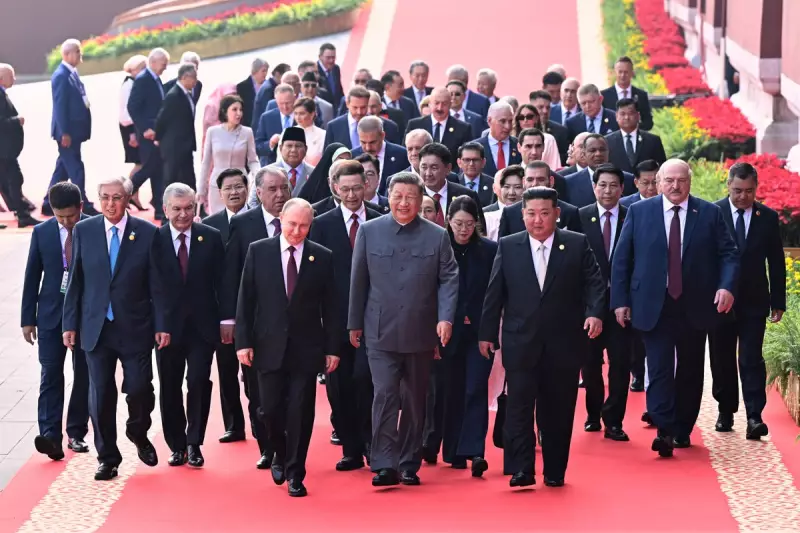
In a powerful display of unity that is set to send ripples across the global stage, Russian President Vladimir Putin and Chinese leader Xi Jinping are expected to stand alongside North Korea's Kim Jong Un at a major military parade. The event, scheduled for July, will commemorate the end of the Korean War and showcase a formidable 'anti-Western axis'.
A Gathering of Giants
The parade in Pyongyang will be more than a show of military hardware; it is a potent symbol of a deepening geopolitical alliance. This gathering of three of the world's most contentious leaders represents a significant shift in international relations, directly challenging the influence of the United States and its allies.
Celebrating a Shared History
At its core, the event marks the 70th anniversary of what North Korea calls the 'Victory in the Fatherland Liberation War'. For the regime, it is a foundational moment. By attending, both Putin and Xi are not just observing but endorsing North Korea's narrative and its current leadership, strengthening ties that have been cautiously rebuilt after a period of cooler relations.
Strategic Implications and Global Response
Analysts suggest this meeting is a direct consequence of the West's policies towards Russia and China. Isolated by sanctions and strategic competition, Moscow and Beijing are increasingly turning to each other and to other states opposed to the US-led order. This tripartite meeting solidifies a coalition that could alter the balance of power in Asia and beyond.
The international community, particularly South Korea, Japan, and the United States, will be watching closely. Such a high-profile show of support for North Korea's regime is likely to escalate regional tensions and complicate ongoing efforts regarding Pyongyang's nuclear weapons programme.
A Message to the World
The image of Putin, Xi, and Kim together will be one of the most defining political photographs of the year. It is a clear and calculated message: a new, assertive bloc is forming, ready to defy Western sanctions and diplomatic pressure. The world must now reckon with the reality of this strengthened alliance and its profound implications for global security and diplomacy.





